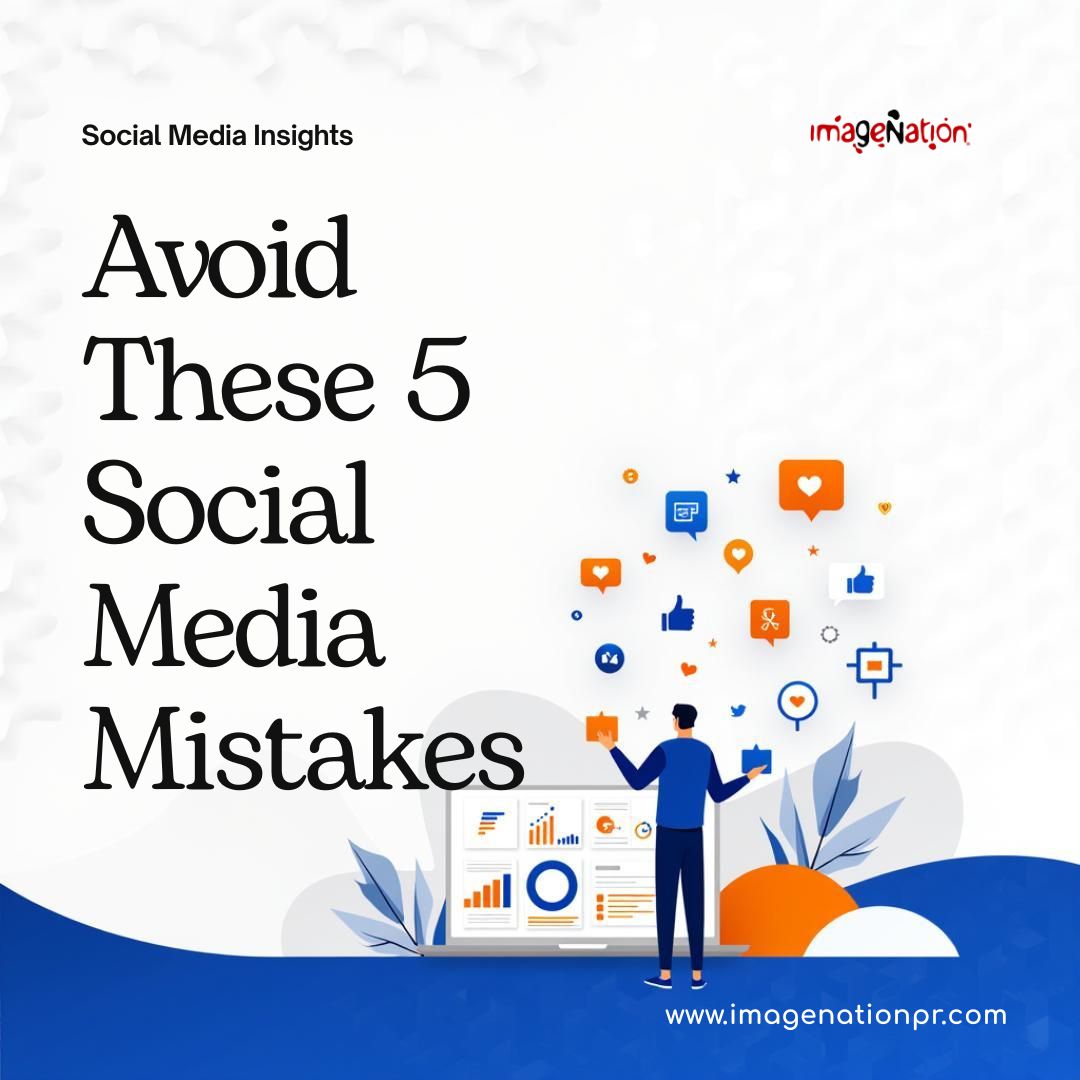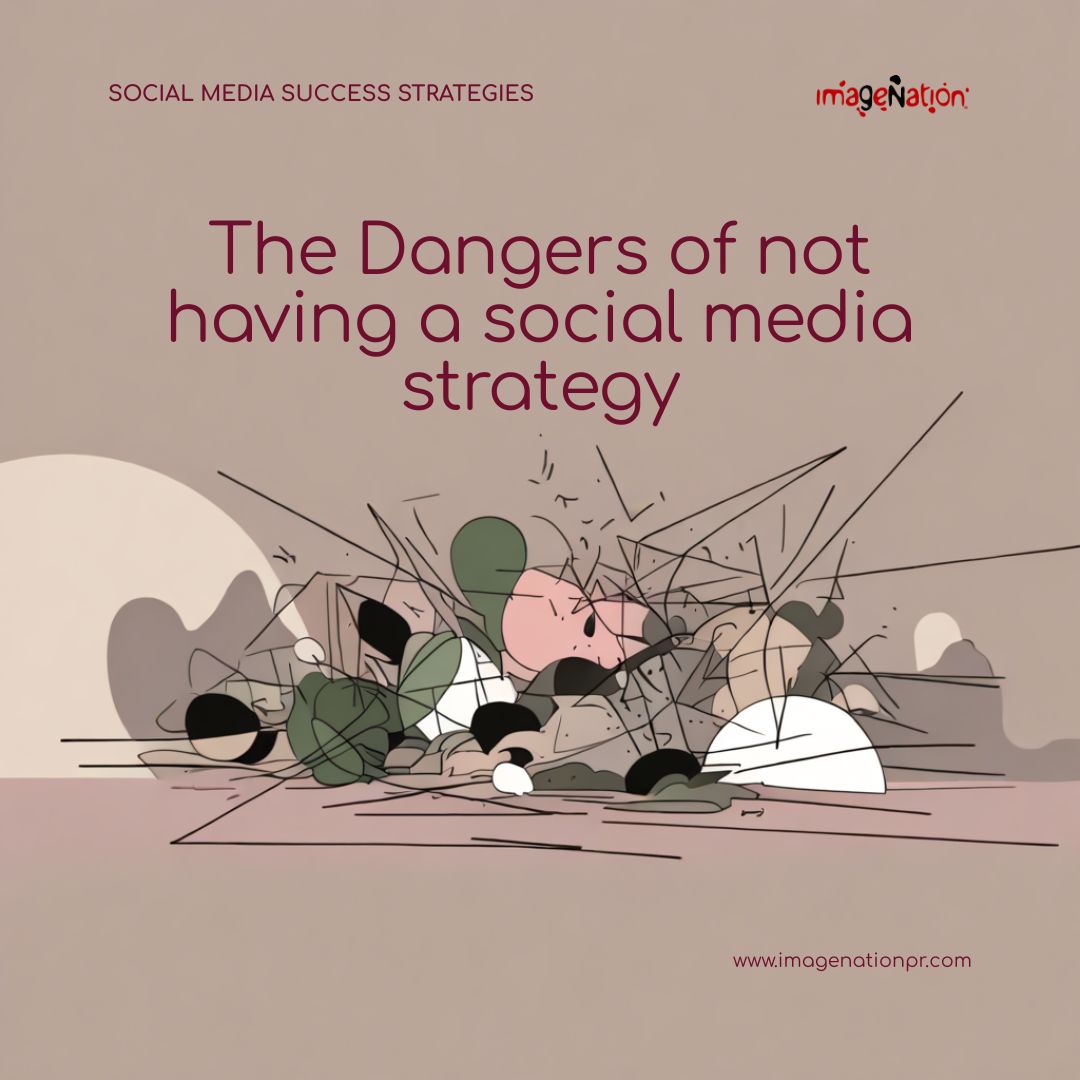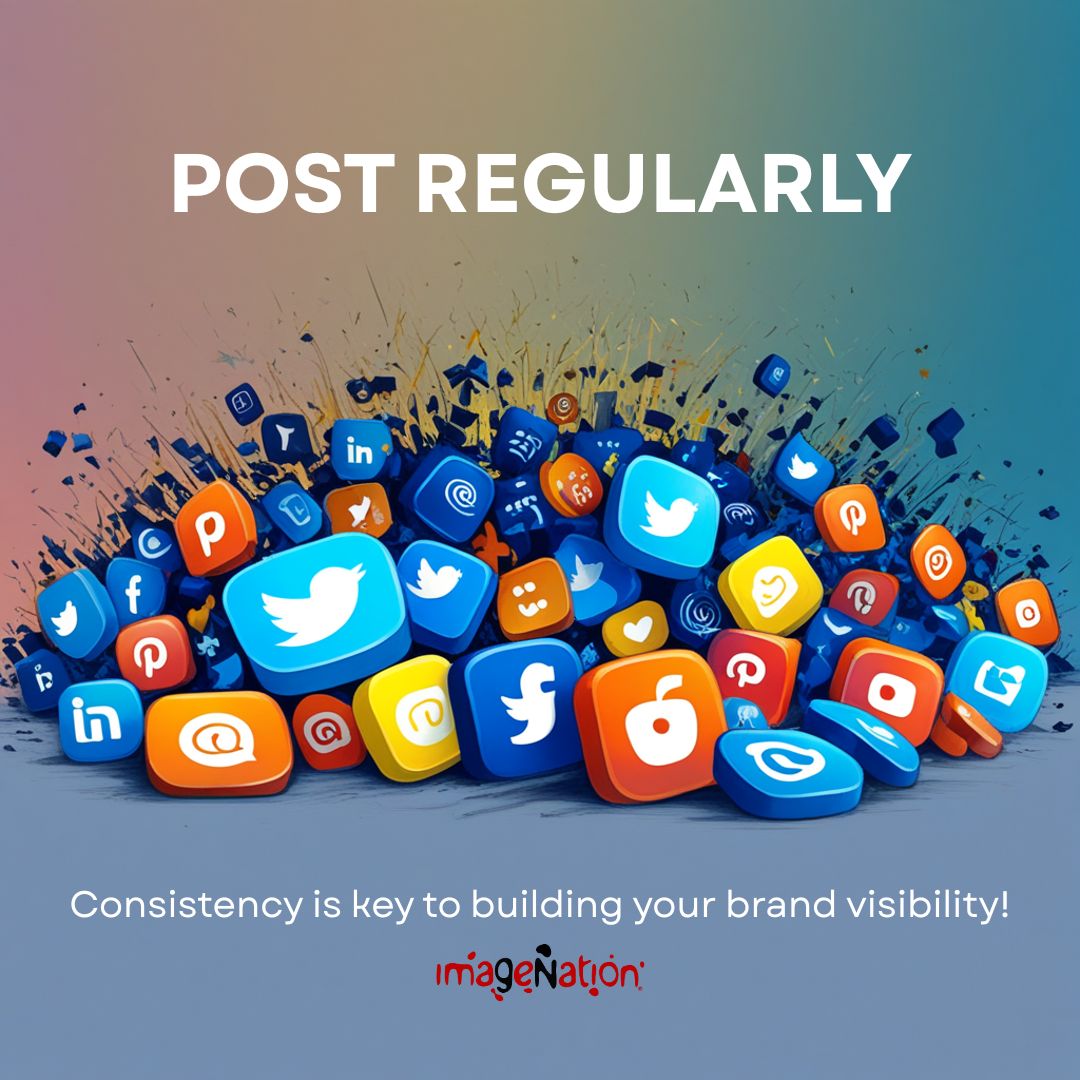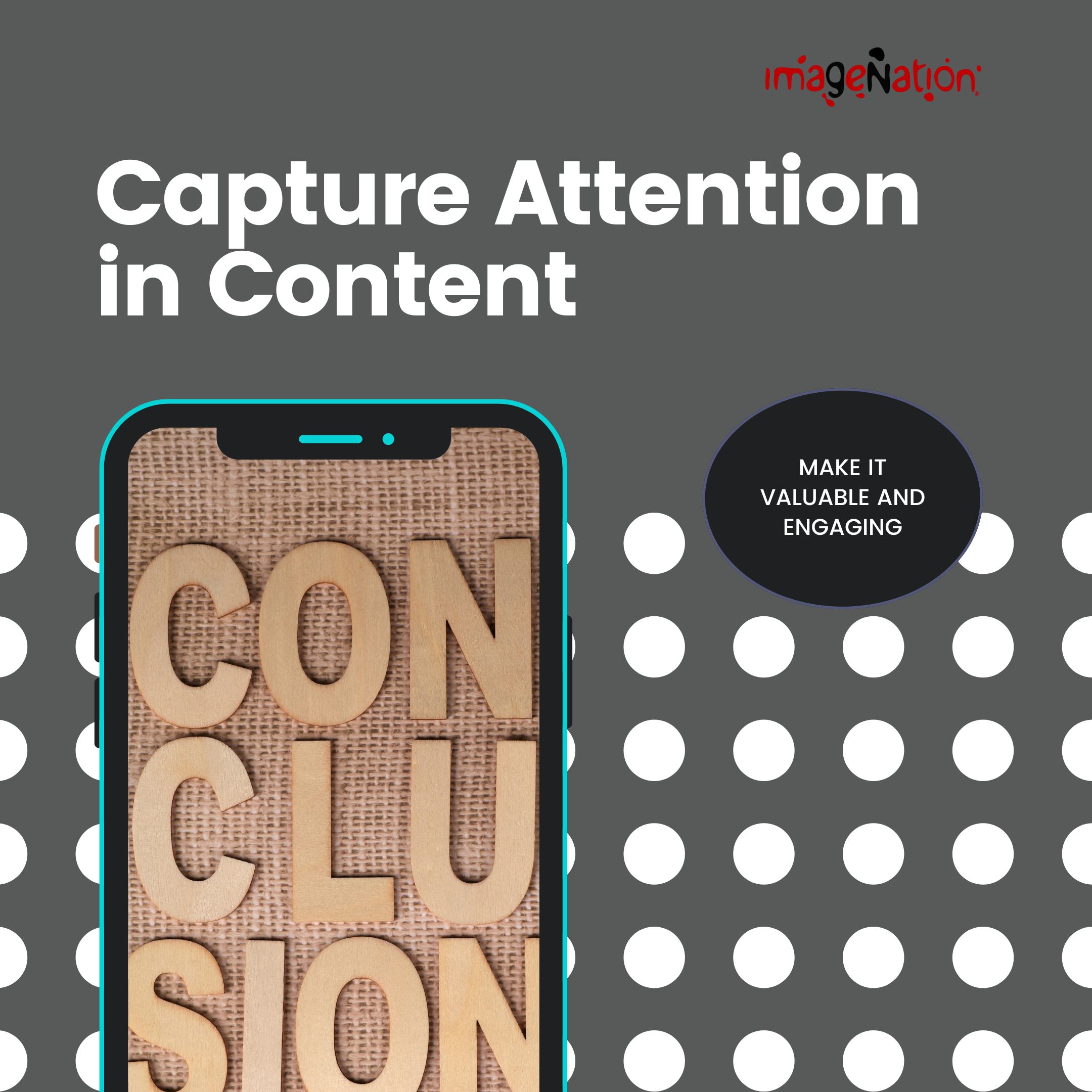
Social media: it’s the lifeblood of modern marketing, a place where businesses can connect with customers, build brand awareness, and drive sales. But like any powerful tool, it can be misused. In this article, we’ll explore 5 common social media mistakes businesses make, and how you can avoid them. We’ll even sprinkle in some examples, with a special focus on how these mistakes might manifest in a vibrant market like Cameroon.
1. Not Having a Social Media Strategy

Jumping onto social media without a plan is like setting sail without a compass. You might get somewhere, but it probably won’t be where you intended.
The Mistake: Many businesses, especially smaller ones, treat social media as an afterthought. They post sporadically, without clear goals, target audiences, or content plans.
Why it Hurts: This leads to inconsistent messaging, wasted effort, and poor results. You might be posting on Facebook when your ideal customer is on Instagram, or sharing irrelevant content that doesn’t resonate with anyone.
How to Avoid It:
- Define your goals: What do you want to achieve? (e.g., increase brand awareness, drive website traffic, generate leads, improve customer service). Lea
- Know your audience: Who are you trying to reach? What are their interests, needs, and online behavior?
- Choose the right platforms: Not every platform is right for every business. Focus on the ones where your target audience is most active.
- Create a content calendar: Plan your posts in advance to ensure consistency and variety.
- Example (Cameroon): Imagine a small “buyam-sellam” business in Douala, Cameroon, that sells colorful fabrics. Without a strategy, they might post blurry photos of their products on their Facebook page with no descriptions, targeting everyone. A better approach would be to identify that their target audience is young women who are interested in trendy fashion. They could then use Instagram to post high-quality photos and videos of their fabrics made into stylish outfits, partnering with local fashion influencers, and using relevant hashtags like #CameroonianFashion #MadeInCameroon.
2. Inconsistent Posting

In the fast-paced world of social media, consistency is key. If you disappear for weeks at a time, your audience will forget about you.
The Mistake: Businesses often start strong on social media, posting regularly, but then lose momentum due to time constraints or lack of ideas.
Why it Hurts: Inconsistency can lead to a decrease in followers, lower engagement, and a damaged reputation. Social media algorithms also favor accounts that post regularly, so your content may be shown to fewer people.
How to Avoid It:
- Create a realistic schedule: Don’t commit to posting every day if you can’t maintain it. Start with a few times per week and gradually increase as needed.
- Use a social media management tool: Tools like Buffer, Hootsuite, or Later can help you schedule posts in advance, saving you time and ensuring consistency.
- Curate content: Share relevant content from other sources in addition to your own. This can help you fill gaps in your posting schedule and provide value to your audience.
- Example (Cameroon): A Yaoundé-based tech startup might create a Facebook page and post daily for a week about their new app. Then, they get busy with development and don’t post again for a month. Their followers, initially excited, lose interest and unfollow the page. Instead, they could schedule weekly posts with a mix of app updates, tech news, and engaging questions, maintaining a consistent presence.
3. Ignoring Engagement
Social media is a two-way street. If you’re only broadcasting messages and not interacting with your audience, you’re missing a huge opportunity.
The Mistake: Many businesses use social media as a platform to push out promotional content, without responding to comments, answering questions, or participating in conversations.
Why it Hurts: This makes your business seem impersonal and uncaring. It can also lead to missed opportunities to build relationships with customers, address concerns, and gain valuable feedback.
How to Avoid It:
- Respond to comments and messages promptly: Show your audience that you value their input and are there to help.
- Ask questions and encourage discussion: Start conversations and get your audience involved.
- Run polls and contests: These are great ways to boost engagement and get people talking about your brand.
- Use stories and live video: These formats allow for more interactive and personal communication.
- Example (Cameroon): A popular restaurant in Kumba might have a Facebook page where they post their daily menu. However, they ignore customer comments asking about delivery options or ingredients. This could frustrate potential customers. A better approach would be to actively respond to inquiries, ask customers for their favorite dishes, and even go live during busy hours to show the vibrant atmosphere of the restaurant.
4. Posting Irrelevant or Low-Quality Content on Social Media

In the age of information overload, people have short attention spans. If your content isn’t valuable, engaging, or visually appealing, it will get lost in the noise.
The Mistake: Businesses often post content that is irrelevant to their audience, poorly written, or visually unappealing. This could include overly promotional posts, blurry images, or long blocks of text.
Why it Hurts: Irrelevant or low-quality content can turn off your audience, damage your brand’s reputation, and decrease engagement. Social media algorithms also tend to favor high-quality content, so your posts may be shown to fewer people.
How to Avoid It:
- Know what your audience wants: What kind of content are they interested in? What problems can you help them solve?
- Create high-quality visuals: Use clear, well-lit photos and videos that are visually appealing.
- Write engaging captions: Use a friendly and conversational tone, and make sure your captions are well-written and informative.
- Vary your content: Mix it up with different formats, such as photos, videos, stories, and live video.
- Proofread everything: Typos and grammatical errors can make your business look unprofessional.
- Example (Cameroon): A hotel in Limbe might post blurry photos of their rooms with generic descriptions like “Nice room, book now.” This is unlikely to attract many customers. Instead, they could post professional photos showcasing the beautiful ocean views, the comfortable amenities, and the unique features of their hotel, along with engaging captions highlighting local attractions and activities.
5. Ignoring Social Media Analytics

Social media analytics provide valuable insights into what’s working and what’s not. If you’re not tracking your results, you’re flying blind.
The Mistake: Many businesses post on social media without paying attention to the data. They don’t track metrics like engagement, reach, and click-through rates.
Why it Hurts: Ignoring analytics means you’re missing out on opportunities to improve your strategy. You may be wasting time and resources on tactics that aren’t working, while neglecting those that are.
How to Avoid It:
- Use the analytics tools provided by each platform: Facebook, Instagram, Twitter, and other platforms have built-in analytics tools that provide valuable data.
- Use Google Analytics: If you’re driving traffic to your website from social media, use Google Analytics to track how those visitors are behaving.
- Track key metrics: Focus on the metrics that are most relevant to your goals, such as engagement rate, reach, click-through rate, and conversion rate.
- Analyze your data regularly: Don’t just look at your analytics once in a while. Make it a habit to review your data regularly (e.g., weekly or monthly) to identify trends and patterns.
- Adjust your strategy based on data: Use your findings to improve your content, posting schedule, and overall social media strategy.
- Example (Cameroon): An e-commerce business in Cameroon might be running a social media campaign to promote a new product. They post regularly but don’t track their click-through rates or conversion rates. They don’t know if their ads are driving sales. By analyzing their data, they might discover that their Instagram ads are performing well, but their Facebook ads aren’t. They can then adjust their budget and strategy to focus on the platform that’s driving the best results.
Key Takeaways
Social media can be a powerful tool for businesses of all sizes, but it’s important to use it effectively. By avoiding these 5 common mistakes, you can improve your social media presence, connect with your audience, and achieve your business goals. And remember, the principles apply everywhere, whether you’re a multinational corporation or a local business in Cameroon.
